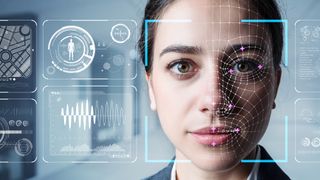US banks are using AI to watch customers and employees
Banking execs are wary of backlash as they ramp up facial recognition use

A number of US banks are starting to use cameras with AI software to analyze customer preferences, monitor their workers and watch for homeless people sleeping near their ATMs, according to Reuters.
Still, many banking executives are treading cautiously, worried that heavier computer surveillance could spark public backlash.
Previously unreported trials at JPMorgan Chase and City National Bank of Florida, along with earlier rollouts at various banks including Wells Fargo, shows financial services organizations see potential in AI tools, such as facial recognition software.
JPMorgan Chase is testing the technology at Chase Bank branches in Ohio, according to Reuters. Meanwhile, City National plans to start facial recognition trials to ID customers at teller machines and employees at bank branches.
Chase developed its AI camera system using components from Google, IBM Watson and Amazon Web Services. Its cameras aim to monitor banking transaction times, how many customers leave because of long lines, and what activities occupy workers.
Some banks use video analytics software to keep watch on their banks’ exteriors, including watching for homeless people setting up camp under the overhangs for drive-thru ATMs.

The path to CX excellence for B2B services
The four stages to thrive in the experience economy
This will allow staff to activate a siren or strobe light to drive them off, which helped some banks increase ATM usage and reduce vandalism, said Brian Karas, vice president of sales at Airship Industries, which develops video management and analytics software.
Get the ITPro. daily newsletter
Receive our latest news, industry updates, featured resources and more. Sign up today to receive our FREE report on AI cyber crime & security - newly updated for 2024.
Smartphones that unlock with face scans paved the way for all this, said Bobby Dominguez, chief information security officer at City National.
“We’re already leveraging facial recognition on mobile. Why not leverage it in the real world?” he told Reuters. “We’re getting off to an early start on technology already used in other parts of the world and that is rapidly coming to the American banking network.”
However, the US is not “other parts of the world,” and some banking execs are wary of a backlash and civil liberties complaints. For example, Portland, Oregon, recently banned public-facing businesses like stores, restaurants and hotels, from using facial recognition technology.
Rite Aid found itself in hot water over facial recognition software and shut down its facial recognition cameras in 200 stores last year after it was found using it mainly in lower-income minority neighborhoods. Rite Aid’s facial recognition tech was from a company with links to the Chinese government, compounding its issues.




